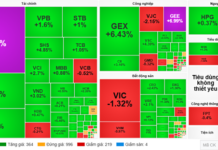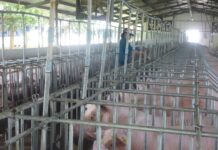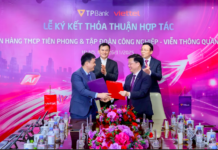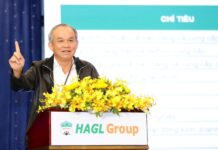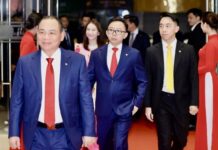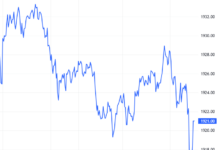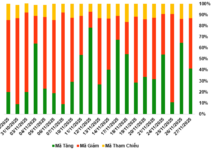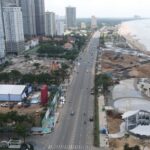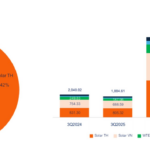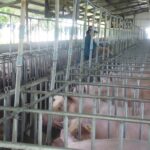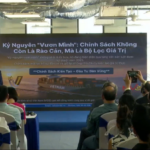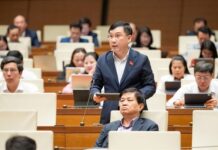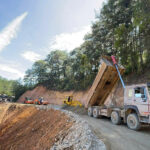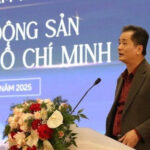According to the International Data Corporation (IDC), Artificial Intelligence (AI) is projected to contribute a staggering $5 trillion to the global economy by 2030. Recognized as a strategic technology sector, AI holds immense potential for Vietnam’s future growth.
This critical topic was a focal point during Deputy Prime Minister Nguyen Chi Dung’s meeting with the Innovation Network and Vietnamese experts on November 26th at the National Innovation Center (NIC) in Hoa Lac. The discussion centered on fostering strategic technology sectors in Vietnam.
What steps should Vietnam take to accelerate the development of strategic technology sectors within the next 1-2 years?
Addressing this question, particularly regarding AI development, Associate Professor Dr. Nguyen Phi Le, Director of the AI Research and Development Institute (AI4LIFE) at Hanoi University of Science and Technology, emphasized the crucial need for resources.
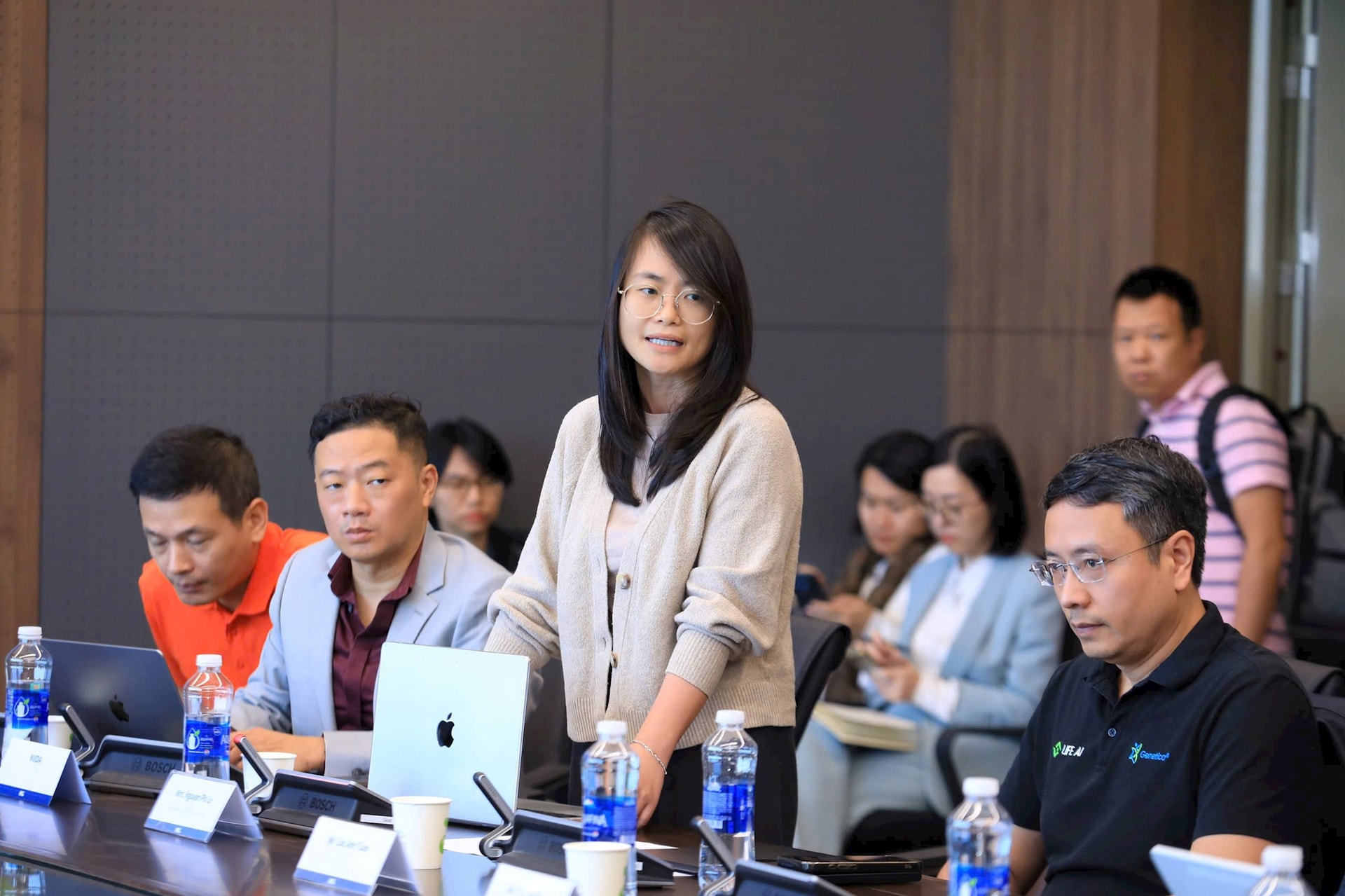
Associate Professor Dr. Nguyen Phi Le addressing the Deputy Prime Minister. Photo: MH
Dr. Le highlighted the importance of developing AI solutions tailored to Vietnam’s unique challenges. For instance, the frequent and severe flooding experienced in Vietnam requires specialized AI models. While global powers like the US, China, and the EU possess advanced weather forecasting models, these models are trained on global data and may not effectively address Vietnam’s specific climatic conditions.
“Therefore, to create AI solutions specific to Vietnam, collaboration between Vietnamese AI experts and meteorologists is essential. This necessitates a strong domestic AI talent pool, which currently remains limited,” Dr. Le stressed.
Cultivating AI Elite Talent for “Made in Vietnam” Strategic Products

AI applications in meteorology and hydrology can help Vietnam predict weather changes and flooding. Illustration
Dr. Le proposed to the Deputy Prime Minister, “We must prioritize fostering elite AI talent. Currently, AI education in Vietnamese universities primarily focuses on undergraduate programs, equipping students with basic AI skills rather than advanced expertise.”
She further explained that Vietnam lags behind globally in postgraduate AI education. Many top Vietnamese students pursue advanced degrees abroad and often remain overseas. This brain drain contributes to a shortage of highly skilled AI professionals in Vietnam. To address this, Dr. Le advocated for establishing AI master clusters, similar to China’s model. These clusters would bring together leading Vietnamese universities and technology companies. Companies could propose real-world AI challenges, and universities would select top students for specialized master’s and doctoral programs. Funding for these programs could be sourced from industry partnerships, with graduates potentially joining the sponsoring companies.
“Additionally, these clusters could foster collaborations with leading international research institutions. Many experts are eager to contribute to Vietnam’s AI development. This approach will enable Vietnam to build a sustainable AI ecosystem and achieve technological self-reliance,” Dr. Le stated.
She continued, “Secondly, regarding strategic products, we should focus on areas where Vietnam has a unique advantage. AI applications in meteorology and hydrology are prime examples. Only Vietnam can develop these solutions effectively due to our specific data and expertise. Flooding is a critical issue with significant social impact, and AI can play a pivotal role in mitigation.”
Tackling Vietnam’s Pressing National Challenges
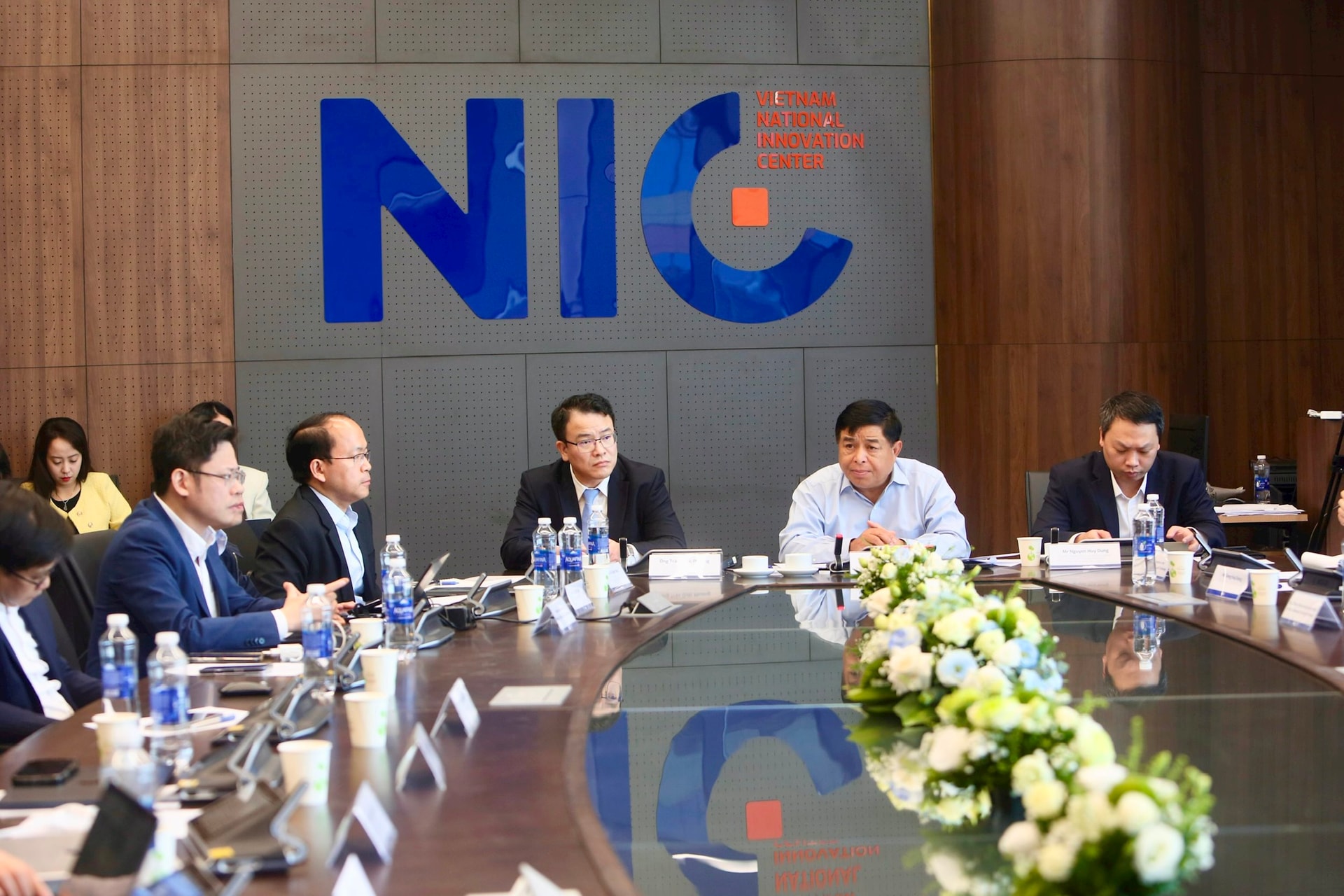
Deputy Prime Minister delivering remarks at the meeting. Photo: MH
During the meeting, Deputy Prime Minister Nguyen Chi Dung urged the Innovation Network and experts to align their efforts with national policies, particularly Resolution 57, which outlines 11 strategic technology sectors. He emphasized addressing Vietnam’s most pressing challenges.
The Deputy Prime Minister encouraged the network to actively pursue international collaborations, engage Vietnamese experts both domestically and abroad in short-term and long-term projects, and participate in policy reviews, strategy development, knowledge transfer, and technology consulting. He also stressed the importance of attracting international resources, establishing R&D centers, and supporting product development.
He emphasized that developing strategic technology sectors is crucial for Vietnam’s rapid and sustainable growth, enhancing its competitiveness and enabling it to catch up with and surpass developed nations. This endeavor requires the collective effort of the entire political system, citizens, businesses, and the dedicated contributions of experts, scientists, and international partners.
Unveiling the Allure of the ‘AI in Action’ TV Competition: Decoding Its Irresistible Appeal
The inaugural episode of “A.I Thực chiến” will premiere on November 26, 2025, at 8 PM on VTV2, with a rebroadcast on November 28 at 9 AM on VTV3. As Vietnam’s first-ever AI-focused competition and a flagship national TV program on artificial intelligence, it offers a 1 billion VND cash prize, a 1 million USD scholarship, and the chance to become a “USD Millionaire Under 30” sponsored by Techcombank, Masterise Group, and One Mount Group.
Thailand’s Renewable Energy Giant Rakes in Over $90 Million in Vietnam in Just 9 Months
Super Energy, a leading Thai renewable energy company, has made significant strides in Vietnam with its impressive portfolio of projects. Among its notable ventures are the Lộc Ninh 1, 2, and 3 solar power plants and the HBRE Chư Prông wind farm. The company recently released its third-quarter business report for this year, showcasing its continued growth and impact in the region’s renewable energy sector.
Today’s Live Hog Prices, November 26: Continued Rise Across Multiple Regions
Live pig prices have been consistently on the rise over the past two weeks, with a total increase of 5,000 to 6,000 VND per kilogram.
Dr. Trần Quý: In the Era of Aspiration, Policies Are Not Barriers but Value Filters
Speaking at the SIHUB seminar on the afternoon of November 26th, Dr. Tran Quy asserted that Vietnam is entering a new phase of governance, where policy becomes the pioneering force and filtering mechanisms are in place to attract valuable capital, technology, and talent, rather than lagging behind reality or creating barriers.

